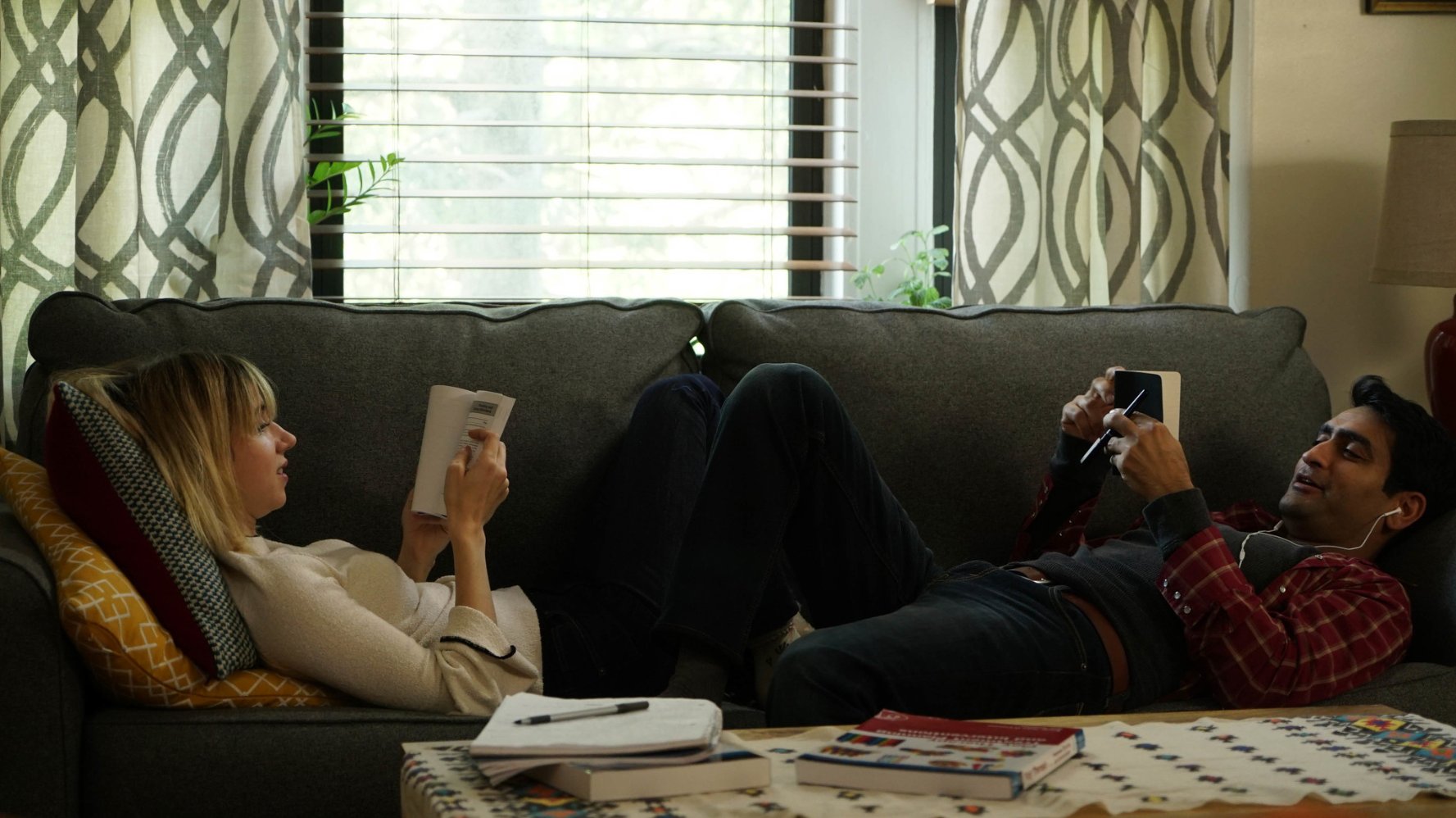The true story of a Pakistani immigrant moving to Iowa to attend college, then pursuing a career in stand-up comedy, seems rife with big-screen possibilities.
But the more serious elements of Kumail Nanjiani’s life are what prompted him to write the autobiographical low-budget comedy The Big Sick — such as his attempts to make ends meet during some lean years in show business, or his strained relationship with his parents over issues of arranged marriage, or the serious illness that put his girlfriend in a coma.
In addition to co-writing the screenplay with his American-born wife, Emily, Nanjiani stars in the project, which chronicles their unique relationship challenges with a comic spin — and in a way that wouldn’t have resonated from the stage.
“If you’re on stage talking about a coma, it takes you so long for people to get back to laughing. In a movie, you don’t always have to be funny,” Nanjiani said during a recent stop in Dallas. “With stand-up, you kind of have to be funny the whole time. If it’s something that happened to you, then you can mock it and make fun of it in a way that you couldn’t if it happened to somebody else.”
Playing himself, before he achieved modest fame through supporting roles in movies and on television, the film hearkens back to when Kumail — living in a cramped Chicago apartment and sleeping on an air mattress — meets Emily (Zoe Kazan) after she gently heckles him during a stand-up set. They’re drawn together by each other’s shared sense of quirky humor.
But will the relationship last? The primary obstacle is Kumail’s overbearing parents, who use family dinners to introduce him to potential Pakistani brides, in accordance with tradition. He lacks the courage to stand up to them, and it causes a breakup.
Then Kumail gets a call that Emily is in the hospital with a serious undiagnosed ailment. That’s where he winds up meeting her strong-willed mother (Holly Hunter) and more understanding father (Ray Romano), and bonding with them over the uncertainty about her condition — and for Kumail, about his future with Emily.
“This is not a movie with good guys and bad guys. Nobody’s right or wrong. Everybody is kind of right and everybody is kind of wrong. We wanted to show the struggle that my family has to try and hold on to their culture and identity, in a place where it’s not really valued. There’s a nobility in that struggle,” Nanjiani said. “A lot of immigrants come here and sacrifice their own lives for the lives of their kids, and then the kids choose a life that’s different from the one the parents wanted for them. It’s heartbreaking. I did disappoint my parents. It’s easy to have that American sense of ‘love conquers all,’ but it’s complicated.”
The film, which was produced by Judd Apatow and directed by Michael Showalter (Hello My Name is Doris), was made within budget constraints that allowed for more creative control.
“We knew there was going to be a challenge casting me in the lead because I’m not super-famous and I’m not the type of person you normally see as the lead in a big Hollywood comedy,” Nanjiani said. “We made it for so little money that you can tell your specific story without people butting in. We tried to make it very personal and specific.”
Over the course of the five years they worked on the screenplay, the husband-wife duo took some dramatic license in spots. For example, Emily’s mother isn’t as cold and standoffish as she appears on screen. Yet the embellishments also had a cathartic side benefit.
“They’re very nice Southern people. When you’re doing something this personal, the changes shield you and make you feel a little safer putting it out there,” Nanjiani said. “It helped Emily that her parents in real life are so different from the parents in the movie. Having a little bit of distance is good.”
Nanjiani, 39, hopes the cross-cultural, compassionate approach to inclusion in The Big Sick will resonate with a diverse range of moviegoers.
“The movie is very sincere and optimistic. We have much more in common than we don’t,” he said. “We’re in a world right now where people who look different from you or disagree with you politically are seen as the bad guys. You put them in a box, and people aren’t talking to each other. If we just talk to each other, I think things would be better. We’re all just people, and we have our struggles, and we’re all just trying our best. I think empathy is the most important trait we have.”





